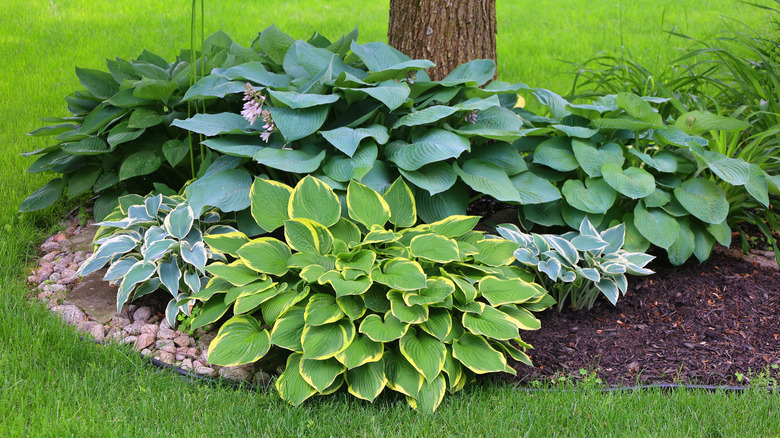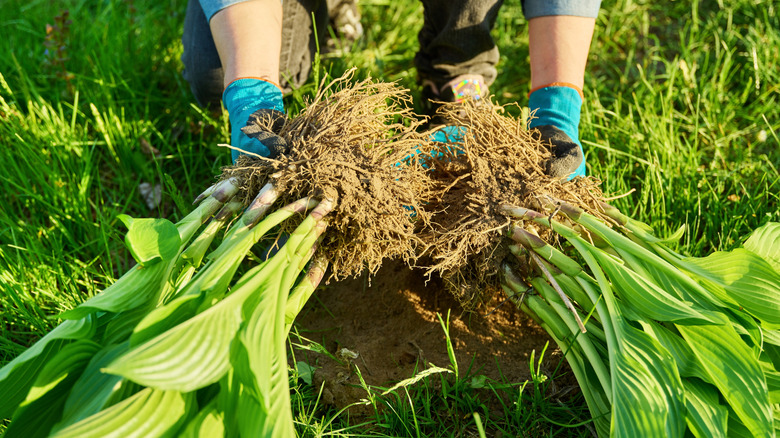The Popular And Versatile Plant With Graceful Blooms That Is Perfect For An Allergy Friendly Garden
With little to no airborne pollen, hostas (Hosta spp.) are a great plant for allergy sufferers. They are often planted for their attractive foliage rather than for their flowers. Their flowers arc gracefully off of long stems, but are themselves small and relatively inconspicuous. Hostas primarily reproduce underground by rhizomes rather than by producing seeds, so they don't waste their time producing an abundance of pollen to attract pollinators. Rest assured that you can plant and maintain them with little risk of making your allergies worse.
Hostas come in hundreds of varieties, from 4-inch dwarfs to giants that grow to over two feet tall. They are popular because their shade tolerance and broad, single-colored or variegated leaves can fill spots in gardens where many plants won't grow. Hostas are versatile because they thrive in lower slight – dappled shade with a bit of morning sun for many varieties, deep shade for others. If you lack shade, there are even hosta varieties that are tolerant to the sun. Planting large-leafed varieties is also an excellent way to shade out weed growth underneath.
Hosta Care and Maintenance
Growing hostas is relatively easy. Depending on the variety, they can tolerate a wide range of climate zones, from USDA plant hardiness zones 3 to 9. They prefer neutral to acidic soil with good drainage and do not tolerate wet soil. Because they grow by underground rhizomes, they may need dividing in early spring every three to five years. One of the mistakes that gardeners make when growing hostas is forgetting to plant them in deep shade. Hostas can develop leaf burn when exposed to too much sun. If you live in the American South, you might plant begonias instead, which perform better in southern landscapes.
Hostas do have their drawbacks. Many animals love them, especially deer, rabbits, slugs, and snails. One secret to keeping slugs out of your garden is to use baking soda. Another problem is that hostas are toxic to pets if their leaves are ingested. The American Society for the Protection of Animals (ASPCA) lists hostas as toxic to dogs, cats, and horses. And the plant disease known as Hosta Virus X can cause brown spots and leaf deformation. Diseased plants should be removed to prevent spreading. One thing you won't have to worry about, however, is making your allergies worse.

